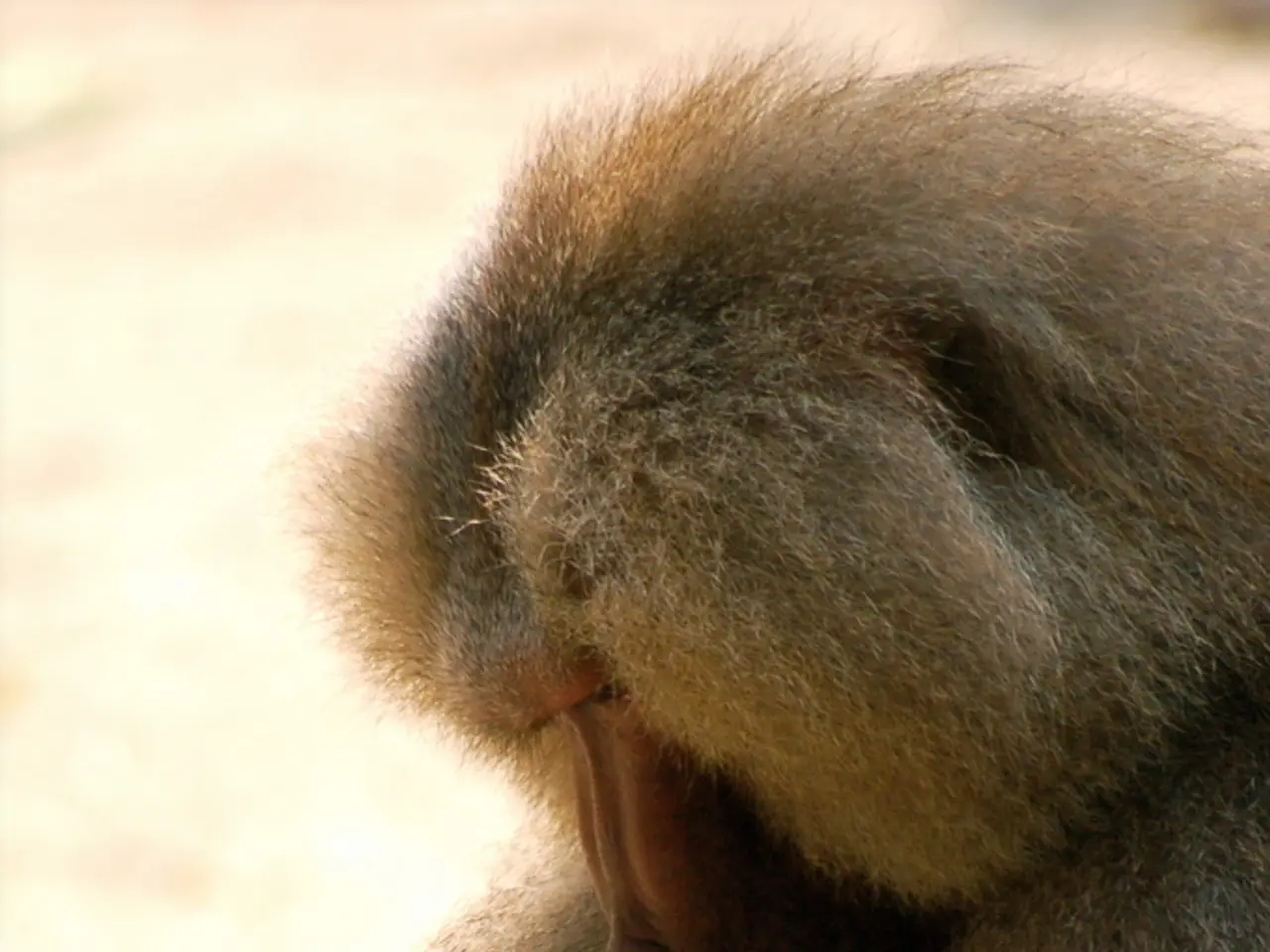Sleepy Heads: Why Orangutans Nap Even During the Day
Orangutans return to slumbering after the episode.
A day in the life of an orangutan is full of challenges - swinging through trees, foraging for food, and socializing with others. If these nocturnal nap enthusiasts don't catch their zzz's properly at night, they'll snooze during the day just like we humans might[1][2]. Sounds familiar?
According to Alison Ashbury from the Max Planck Institute for Behavioral Biology (MPI-AB), when orangutans don't get enough shut-eye at night, they take naps, particularly during the daytime. "Imagine staying up late with your pals or waking up early due to a snoring roommate," Ashbury said. "It's a bit like that." An orangutan may prioritize socializing over sleep or be disturbed by another orangutan, possibly both[1].
longer, more tiring days might mean shorter sleep at night, research shows. Factors like hanging out with other orangutans, cold nights, or busy days with lots of travel could lead to less sleep[1].
research indicates that every hour of lost sleep at night results in a 5 to 10-minute extension of daytime naps. On 41% of observed days, orangutans took at least one nap, with an average length of 76 minutes[1][2]. On days with shorter naps, they often took more[1].
A good nap can help humans recover physically and mentally, explained Meg Crofoot, co-author and MPI-AB director. Similarly, these naps might allow orangutans to physiologically and cognitively recuperate from a poor night's sleep[1].
This research adds to our understanding of sleep's evolution and purpose. "Why do animals, from humans to apes and even spiders, spend such a large part of their lives in an unconscious state?" asked the team[4].
Building and Resting in the Rainforest
Each night, orangutans build a nest, weaving and breaking branches to create a cozy sleeping area. "From our vantage point on the ground, we can't usually see them in their night nests, but we can hear them settling in," explained Caroline Schuppli, group leader at MPI-AB[4]. During the day, they construct simpler, quicker "day nests" to take a power nap[1].
Did you know?Orangutans in the Indonesian rainforest not only nap for compensation but also self-medicate with healing plants. Researchers have observed orangutans using liana leaves to treat wounds[3].
[1] ntv.de
[2] abe/dpa
[3] Self-medication in Orangutans: Using Plant Adhesives to Treat Wounds
[4] The Evolutionary Origins and Functions of Sleep
[5] The Power of a Power Nap: Physiological and Cognitive Restoration in Orangutans
- Apes
- Animals
- Behavioral Research
- Sleep & Rest
Community policy should encourage more focus on the importance of sleep for overall health and wellness, especially in vocational training programs for individuals working in zoos or animal conservation, as understanding the needs of sleep for various species, such as orangutans, is crucial for their proper care.
In the realm of science, further research into the evolution and purpose of sleep could provide fascinating insights, as it is present not only in humans but also in apes, and even in other animals like spiders – suggesting that it serves a vital role in our lives.








